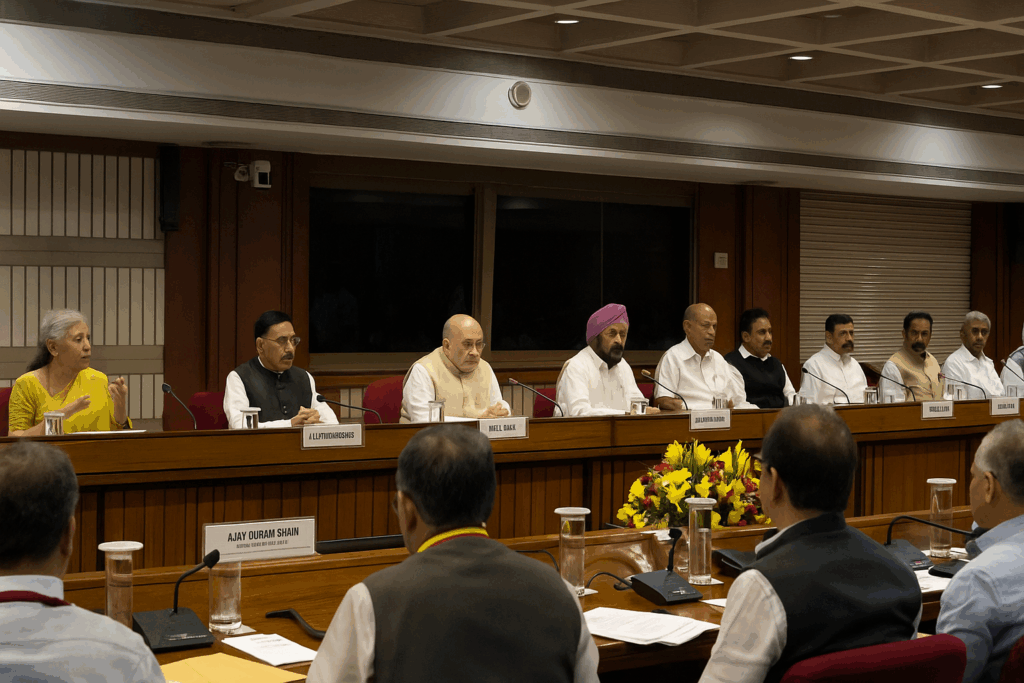United in Grief, Divided on Lapses: All-Party Meet on Pahalgam Terror Attack Sends Strong Message Against Terrorism
Introduction: Unified Condemnation, Divided Opinions
In the wake of the horrific terror attack in Pahalgam, Jammu and Kashmir, on April 22 that claimed the lives of 26 tourists, the central government convened a high-level all-party meeting in New Delhi on Thursday, April 24, 2025. Attended by senior leaders from all major parties, the meeting served as both a forum for national unity and a platform for expressing concern over perceived security lapses.
Government’s Briefing: ‘Attack Aimed at Destabilising Nation’
The Bharatiya Janata Party-led central government told the attending leaders that the Pahalgam terror attack was carried out “to vitiate the country’s atmosphere.” Defence Minister Rajnath Singh chaired the meeting alongside Home Minister Amit Shah, External Affairs Minister S. Jaishankar, Finance Minister Nirmala Sitharaman, BJP President JP Nadda, Congress President Mallikarjun Kharge, and Leader of Opposition Rahul Gandhi.
Union Minister Kiren Rijiju, speaking to the media after the meeting, said all parties extended unequivocal support to the government’s fight against terrorism. Intelligence Bureau and Home Ministry officials provided a detailed update on preventive steps underway.
Cross-Party Consensus: Tough Action Needed
Leaders across political lines reiterated their demand for firm action against terrorism and dismantling of terror camps. While broadly supporting the government, several opposition leaders – prominently from the Congress – raised concerns regarding security coordination.
Congress President Kharge underscored a “security lapse” during the meeting while pledging the party’s full backing to actions against the perpetrators. Rahul Gandhi echoed this sentiment, noting that all participants unanimously condemned the attack and assured support to government action.
Kharge also voiced disappointment at Prime Minister Narendra Modi’s absence from the crucial meeting, suggesting it would have enabled the PM to directly hear opposition concerns.
India’s Diplomatic Response to Pakistan
In response to intelligence reports linking the attack to cross-border terrorism, the Indian government announced a series of diplomatic downgrades on Wednesday. These included:
- Expelling Pakistani military attachés
- Suspension of the Indus Water Treaty of 1960
- Immediate closure of the Attari land transit post
These moves marked a sharp escalation in India’s diplomatic stance and were widely supported during the meeting.
Security Measures and Official Presentation
The meeting opened with Defence Minister Rajnath Singh briefing leaders about the attack and the government’s rapid response. IB Director Tapan Deka made a 20-minute presentation outlining the attack’s timeline and security measures being implemented. Home Minister Amit Shah responded to queries from political leaders as necessary.
The government reiterated its commitment to strengthening security and acting decisively against terrorism and its supporters. Officials highlighted that the attack was designed to disrupt peace and economic progress in Jammu and Kashmir, especially amid a growing tourism revival.
Security Lapse Explained: Lack of Information Flow
Sources revealed that while security forces were stationed in Pahalgam, they were not deployed effectively due to a lack of communication. Local authorities were reportedly unaware that tourists were being taken to Baisaran.
The government cited failure on the part of tour operators and hoteliers to inform authorities about tourist movements. The deployment of forces, it was emphasized, depends on timely and accurate information from these stakeholders.
Opposition Reactions: Supportive But Watchful
While the atmosphere of the meeting was largely cooperative, opposition MPs voiced concerns over delayed response and insufficient coordination. However, there was no “bitter exchange,” as per sources quoted by PTI.
Opposition leaders acknowledged positive developments in Jammu and Kashmir — such as the absence of stone-pelting or arson — and showed renewed interest in visiting the Union Territory. Many parliamentary committees have already visited the region, and more such visits are expected.
Despite political differences, the collective message from the meeting was clear: terrorism will not be tolerated, and all parties stand together in ensuring national security.


